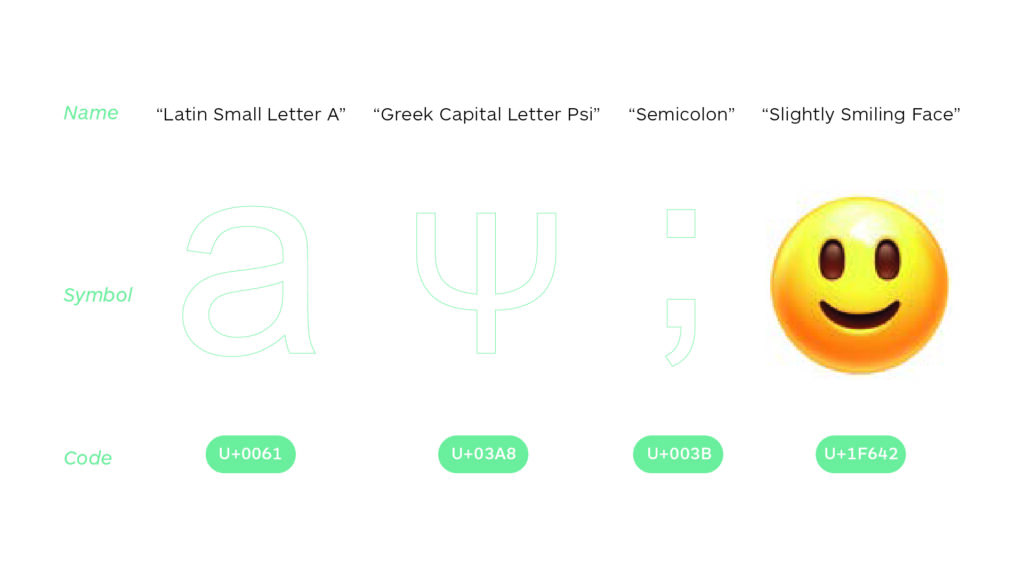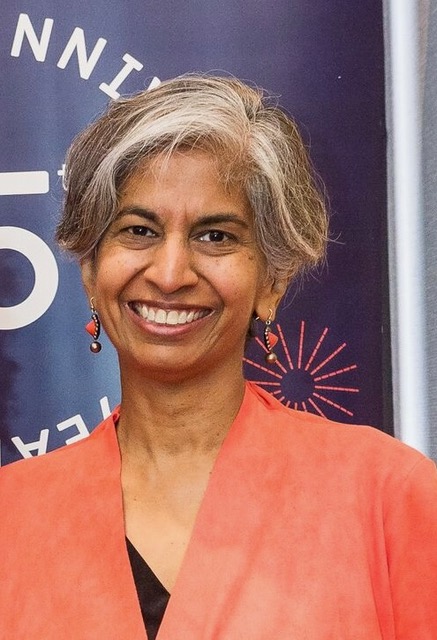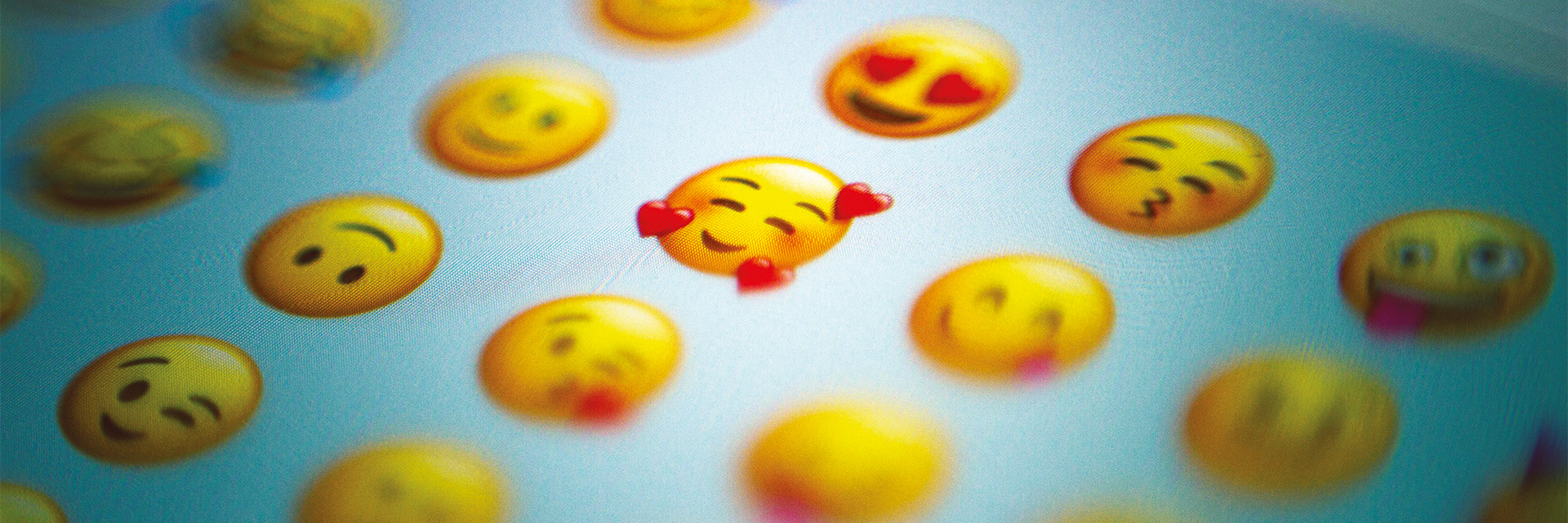Localization
Today most people take for granted that their phones and computers can display text in any of hundreds of languages, handle dates, times, numbers, currencies in familiar local formats, and faithfully send emoji-laden messages to friends using any device.
That wasn’t always the case, and it doesn’t happen by accident.
For more than 30 years, the non-profit Unicode Consortium has coordinated the efforts of a world-wide team to standardize, evolve, and maintain a global software foundation. This team has included thousands of programmers and linguists, consisting of both volunteers and other contributors. This foundation allows virtually every computer system and service to help people connect using their native language, which has real world consequences.
Today’s global economy runs on networks that reach billions of consumers around the globe. An airline reservation system in Ireland processes a reservation made by a traveler in Swahili. Databases, commerce engines, websites, and shipping systems handle local names, addresses, and text in hundreds of languages and their scripts and writing systems from Latin to Cyrillic to Devanagari to Japanese – all thanks to Unicode standards, data, and code.
Founded in 1987 and incorporated in 1991, the Unicode Consortium is the premier open source, open standards body for the internationalization of all software and services.
Its work is based on four core values:
1. Local solutions require global collaboration
The Unicode Consortium involves experts and stakeholders worldwide, ensuring diverse perspectives. There are two dimensions to this effort.
The first, which is often overlooked, is the creation of the space to do this work. Unicode acts as a neutral ground and convenes stakeholders who recognize the need for interoperable solutions, even though they may have somewhat different priorities. These organizations and individuals recognize the efficiency and importance of collaborating for the greater benefit of billions of users.
The second dimension to local solutions is addressing locale-specific requirements while considering global compatibility. Encoding different scripts and writing systems is the most basic level and only the first step on the path to enabling localization. Unicode goes further: gathering and organizing locale data allows for each culture’s needs to be built into generally available APIs and services in a generic way. This also includes consideration for input methods, such as keyboards.
Encoding different scripts and writing systems is the most basic level and only the first step on the path to enabling localization. Unicode goes further: gathering and organizing locale data allows for each culture’s needs to be built into generally available APIs and services in a generic way.
As a result of this work, developers no longer need to understand each locale’s specific needs in order to support a new region, culture, or language group. By contributing to Unicode and its Common Locale Data Repository, all cultural groups (including digitally disadvantaged communities) garner support regardless of operating system, vendor, runtime, etc.
2. Internationalization respects and empowers users
Unicode standards, software, and code enable localization and software to support local languages and cultures. Indeed, its work is foundational to any localization and translation efforts. Unicode accommodates a vast array of scripts, characters, and symbols, reflecting linguistic diversity. Different languages and cultures have different preferences for the formatting of times and durations, dates, numbers, currencies, names, and more.
They also have different words for languages, countries, scripts, time zones, and emojis, as well as different conventions for sorting lists, which measurement units to use, and which calendars. Unicode’s data and specifications ensure that these language and culture-specific differences are followed fully for more than 90 languages — and improvements for other languages are underway. All of this is essential to ensure that applications feel native – that is, as if they were built by native speakers. In recent years, Unicode has also increased its focus to more deeply engage user communities of digitally disadvantaged languages to contribute to Unicode, ensuring their languages and needs are better represented.
3. Interoperability across platforms benefits everybody
Unicode standards provide a common ground for seamless communication across different devices and systems. Interoperability ensures that data, including text and emoji, can be reliably exchanged and displayed, promoting cross-platform usability. Compatibility means that for your language, all platforms display your dates, times, numbers, etc. in the correct format. Interoperability supports global accessibility, making digital content universally accessible.
Communities can participate in and further fluency and preservation of their cultural heritage while helping to enable it in software and products (such as the Web or on smartphones) so that people can actually use it.
This interoperability also streamlines the development of software and digital services, making it easier for developers to create applications that can be used globally without the complications of incompatible character sets or inconsistent language data or code. Unicode’s standards enable imple- menters of software to display and process content in users’ preferred languages. That is, implementers don’t need to know all their users’ languages to build a product that supports their users well across the world.

4. Open source for Reliability — Security — Stability
Unicode views open source as a critical development mechanism. Open source implementations of Unicode specifications encourage review and scrutiny, enhancing reliability. Rigorous testing and feedback loops maintain the security and stability of Unicode standards, code, and data – and technical groups take great care to maintain the integrity of the work, as changes can cause instability that consequently impact every piece of software. For example, if Unicode were to change its specification or code for line breaks, then documents all over the world would be impacted.
Standardizing through Unicode, in open-source standards, data, and code, also prevents any individual company or organization from owning or attempting to control a language or culture’s heritage, patrimony, evolution, or development. Communities can participate in and further fluency and preservation of their cultural heritage while helping to enable it in software and products (such as the Web or on smartphones) so that people can actually use it.
Conclusion
The Unicode Consortium is the cornerstone of our interconnected digital world. As we navigate our daily lives, effortlessly switching between languages and tools, expressing emotions with emojis, and seamlessly interacting with a diverse array of cultures, it is easy to take for granted the intricate work that has gone into creating this platform, architecture, software, and code.
For more than three decades, the Unicode Consortium has been the driving force behind the standardization, evolution, and maintenance of a vital component of the foundation for global software. This foundation, built on the principles of global collaboration, user empowerment, interoperability, and open source access, serves as the bedrock for the inclusive and accessible digital landscape we enjoy today. Unicode’s commitment to ensuring that every individual, regardless of their language or cultural background, can participate in the digital realm reflects a deep commitment to understand the importance of preserving and respecting our global community.
Photo Credit: Domingo Alvarez – Unsplash

Toral Cowieson
CEO @Unicode Consortium | Board Advisor
Toral Cowieson is the CEO of the Unicode Consortium, the non-profit open source, open standards body that provides the foundation for everyone to communicate in their own languages (and emoji!) across all platforms and on billions of devices.
Additional Contributors:
Addison Phillips is the Chair of the Unicode Message Formatting Working Group. Addison is also the chair of the W3C Internationalization Working Group and a co-author of IETF BCP 47, which is the standard for language and locale identifiers.
Annemarie Apple is the Vice Chair of the Unicode CLDR Technical Committee. She holds a B.A. in linguistics and Dutch studies from the University of California, Berkeley.
